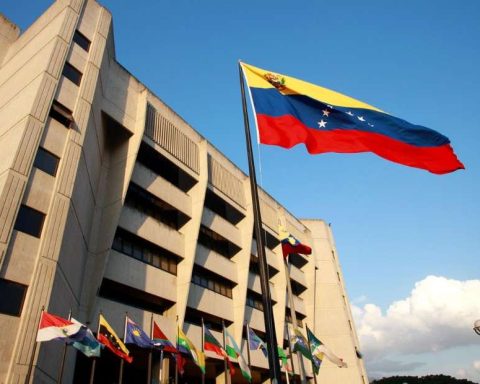A
he beginning was just an annoyance caused by the unexpected and severe electoral setback. They then attached the impertinent and strange language that was introduced into public life. The one that was campaign slogan, first the poor
, now echoed harshly on the walls and windows of the vast hall of the palatial treasury. The sound of angry voices, already heard on various occasions, did not come, as before, from the roads and squares, but from the high podiums of power. A human figure, always quite uncomfortable for the well-placed, had firmly taken possession of the halls of the National Palace. That, in itself, was already taken as an affront to those who still did not feel in their own bodies the displacement of their many customary command pulpits.
A fray of narratives, counterproposals and criticisms began to take shape, which, after the first three years of this administration, has not ceased. On the contrary, he has festered to the point of assuring that it is the efficient cause of the so-called polarization. An accusation launched with fury, not inconsiderable, by the herd of opponents to the recognizable promise of transformation. It is that amalgamation of academic parties, opinion makers and other reactionary allies, a vast coalition that has positioned itself in one of the corners of what is already almost an insurmountable conflict. The reason, without a doubt, is the dispute over the power of the Republic. Not in its current precision, since that was already decided by the electorate in 2018, but the one that is expected in the future. And there they want, they want, they propose, to fix the multiple eyes that yearn to see again, from above, the progress of public affairs.
In the course of the fight unleashed without truce, assumptions and accusations have been added that, in a vague and inaccurate formulation, already form a whole collection of apparent truths. Critical analysts are sure that they have triumphed over the official version, with its solid arguments. It all started with rejections of the admonitory tone and even with religious overtones, they affirmed. Later they began to particularize the supposed and dangerous traits of an authoritarian character without a real reference. And from that derived desires of centralist power that did not point out or recognize any balance and limit. The avalanche of new programs launched, most of them focused on those who had always been excluded, caused an immediate sting.
The concept of populist emerged, without delay that was worth further reflection. And it has been rounded out with quotes from various authors that help them qualify the following various accusations. It happened, almost suddenly, to the prevention of danger for many institutions due to destructive threat. One and another of them were terminated in pursuit of a supposed, ambitious and excessive thirst for control. Kindergartens, full-time schools were liquidated or parties were dismantled. He followed, fully, the thunderous affirmation of shrinking, of contradicting, of putting democratic life at risk. Attacks on the initiative of individuals became commonplace. The same thing happens, according to them, with investment, since it is conspicuous by its absence. It does not matter that the foreigner has reached record figures. Businessmen, so despised and ignored, according to the opposition box, go to the palace to sign agreements and mention programs that, unfortunately, vanish. But others move on. The lack of security is, as almost always, a cause for concern to the point of turning it into a repetitive mantra. There is no legal certainty, the rule of law has been perverted, affirms the opposition bluntly, and it is not given its due seat, although respect for what is established by the SCJN is obeyed with punctilious work. In short, everything, they allege smugly but without precise evidence, leads to the risks that the democratic life of the nation runs. And this because it is proposed to modify the National Electoral Institute, an institution that, in effect, must be perfected, among many other details, with the delayed electronic voting. This mechanism will be a lever for severe change in electoral practices.
The neoliberal insistence on quantifying even the sublime has diverted criticism to the point of making it incomprehensible to the majorities that, en masse, support the official versions. They get confused with the despised popularity, which is also another asset. Lately, opponents console themselves thinking that support for the President and his programs will not be transferable to his heirs. In part it may be feasible, but the surveys clearly reveal that Morena absorbs a good part of the majority’s sympathies. The core of this entire dispute lies in the authorship and use of a narrative that is understandable and felt as its own by the citizens, in particular those who, despite the work carried out, are still helpless.
















